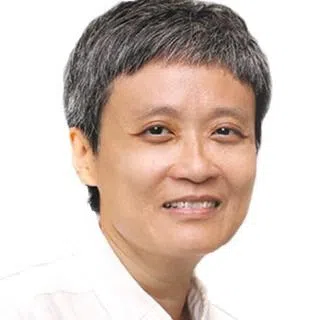Beijing’s new favourite: A Green camp rebel leads the Kuomintang
Once a pro-independence pundit, Cheng Li-wun’s rise to lead Taiwan’s Kuomintang has stunned both sides of the Strait — and given Beijing unexpected hope that a Green camp outsider might revive its dream of peaceful reunification. Lianhe Zaobao correspondent Sim Tze Wei examines the issue.
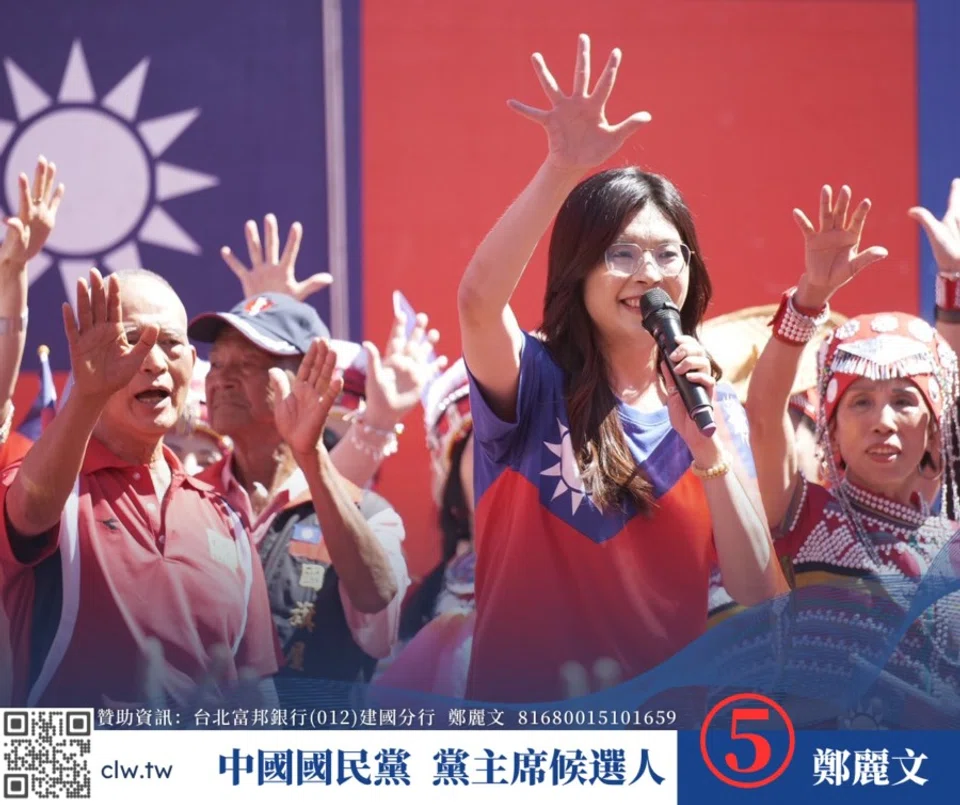
Women’s leadership has been steadily gaining ground across Northeast Asia — and Japan has finally joined the trend, with Sanae Takaichi recently becoming the country’s first female prime minister. Closely linked to Japan, Taiwan’s century-old Kuomintang (KMT) has also just welcomed its second female chairperson, Cheng Li-wun, following Hung Hsiu-chu.
Cheng’s background is quite remarkable: she is the first KMT chairperson to have switched from the Green camp to the Blue camp. A member of the Wild Lily student movement generation, she once made her name on political talk shows for sharply and eloquently criticising the KMT, opposing authoritarianism and championing freedom and democracy. With her powerful command of public discourse, she was the ideal choice to be a TV commentator or party spokesperson.
The “Cheng Li-wun effect” has not caused a political shockwave, but rather a surreal sense of disbelief at how unpredictable politics can be.
Now, two decades after joining the KMT, the 55-year-old Cheng has unexpectedly reached the pinnacle of the party’s power structure — so much so that some within the Blue camp worry she may lean “too pro-reunification”.
The “Cheng Li-wun effect” has not caused a political shockwave, but rather a surreal sense of disbelief at how unpredictable politics can be. As one witty Taiwanese netizen quipped: “Can you imagine the KMT’s Lo Chih-chiang (outspoken politician, institutional insider and critical pundit) becoming the DPP’s chairman one day?”
Fresh, combative, and no compromise
Perhaps it is precisely because Cheng does not come from the KMT’s traditional elite circles that she dares to charge forward and clash head-on without compromise. Combined with her deep familiarity with the Green camp’s mindset, which allows her to strike with precision, she has instead won strong grassroots support within the KMT. For many party members long stifled by frustration, Cheng’s fresh, combative style has offered a long-awaited outlet — and a sense of renewed hope.

Cheng’s rise has also stirred speculation about the future of Taiwan’s political landscape. If her victory marks the dawn of a new era, will the KMT under her leadership be better than before? What new tricks can this century-old party — long out of power — possibly pull off? From Beijing’s perspective, a parallel question awaits an answer: what kind of sparks might fly between the “new-era” KMT and the “new-era” Chinese Communist Party (CCP)? Will cross-strait relations improve, worsen, or simply remain the same?
Official circles and much of online opinion on the mainland are optimistic, believing that Cheng Li-wun’s victory brings new opportunities for cross-strait relations.
In contrast to worries within the KMT that Cheng may be “too pro-unification” and that the rise of “non–Republic of China loyalist” factions could disrupt the party’s internal power structure and electoral prospects for the 2026 local and 2028 presidential races, Beijing’s assessment of the new situation appears to be quite the opposite.
Official circles and much of online opinion on the mainland are optimistic, believing that Cheng Li-wun’s victory brings new opportunities for cross-strait relations. To a large extent, this optimism stems from her past statement that she wants everyone in Taiwan to be able to proudly and confidently declare they are “proud to be Chinese”.
Beijing’s optimism
In his congratulatory message to Cheng, CCP General Secretary Xi Jinping said he hoped “the CCP and the KMT strengthen their common political foundation and unite the vast majority of people in Taiwan to enhance the Chinese ambition, strength of character and confidence, so as to deepen exchanges and cooperation, boost common development, and advance national reunification.”
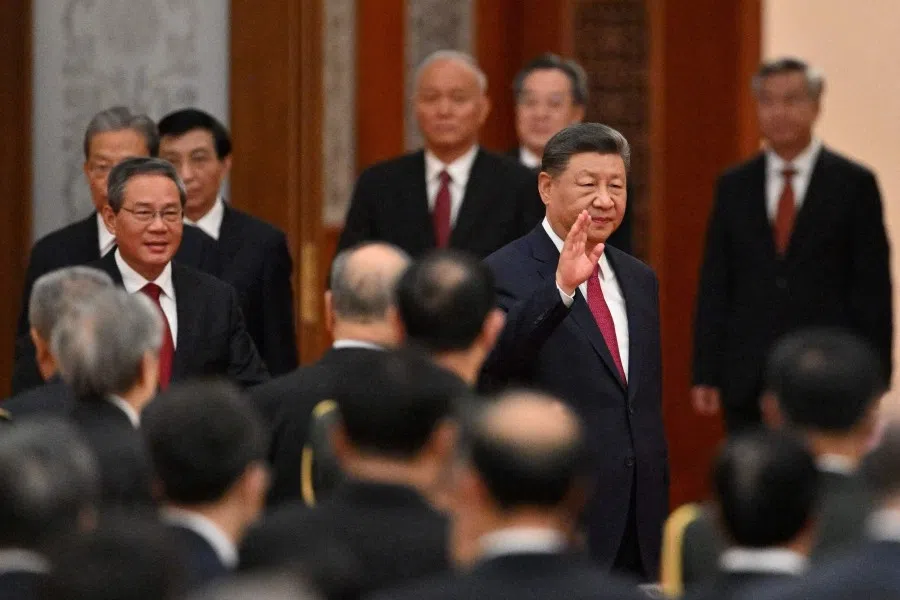
Xi also reiterated the 1992 Consensus and opposition to “Taiwan independence” — the key to cross-strait dialogue. He added that both the CCP and KMT have, based on this shared foundation, achieved positive results in promoting cross-strait exchanges and cooperation as well as in safeguarding peace and stability across the Strait.
Former Global Times editor-in-chief Hu Xijin posted on Weibo with an upbeat headline: “The Cheng Li-wun phenomenon is not only the KMT’s return to form, but possibly the first thunderclap signalling a shift in Taiwan’s political landscape.” He described it as an awakening among some KMT elites who had tried to turn themselves into a “knockoff version of the DPP”, only to realise that path was a dead end.
The KMT and CCP — and indeed both sides of the Taiwan Strait — clearly hold different expectations about what kind of impact the “new-era” KMT under Cheng’s leadership might have on Taiwan’s political landscape.
Chi Chia-lin, honorary chairman of Taiwan’s Unification Alliance Party, also told China Review News that under the current tense state of cross-strait relations, Cheng’s appointment as KMT chair is “the biggest shift in Taiwan’s political landscape”, and may even become a breakthrough in both Taiwan’s domestic politics and cross-strait dynamics. He noted that for many years, the KMT has not had a chairperson who so openly and repeatedly identified as “Chinese”.
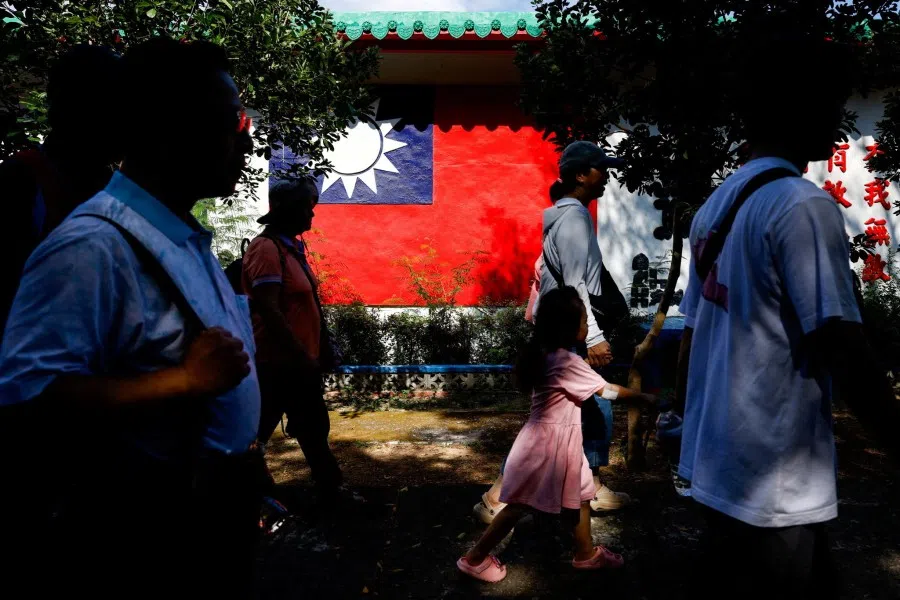
The KMT and CCP — and indeed both sides of the Taiwan Strait — clearly hold different expectations about what kind of impact the “new-era” KMT under Cheng’s leadership might have on Taiwan’s political landscape.
A Green camp outsider at the KMT’s helm
Beijing’s assessment of Cheng may be overly optimistic. Although she has declared that she is Chinese, acknowledged the 1992 Consensus, and insisted on opposing Taiwan independence, she did not directly respond to Beijing’s call for “advancing national reunification”.
Like her predecessors in the KMT, Cheng’s reply emphasises that people on both sides of the Strait are “descendants of the Yan and Huang Emperors and members of the Chinese nation”, focusing more on shared ethnicity, bloodlines, and cultural identity — without elevating cross-strait relations to the level of actively promoting reunification.
Beijing’s satisfaction at seeing Cheng take the KMT helm is clearly about more than her declaration of being Chinese. The deeper reason likely lies in years of unproductive dealings with the KMT’s traditional elites; Beijing now appears to be pinning its hopes on a non-establishment figure like Cheng — someone who can deploy the Green camp’s style of combativeness and political packaging — to help steer cross-strait relations back onto the track of the 1992 Consensus.
...the three Taiwanese figures who have recently gone viral in mainland Chinese discourse all share one thing in common: a Green camp background.
From the perspective of the CCP’s united front work toward Taiwan, Cheng’s defining characteristic remains her origin in the Green camp. From internet fitness celebrity/political activist Holger Chen Chih-han visiting the mainland, to the popularity of the song Useless (《没出息》, a parody of politician Wang Shih-chien’s speeches), to Cheng Li-wun’s election victory — the three Taiwanese figures who have recently gone viral in mainland Chinese discourse all share one thing in common: a Green camp background.
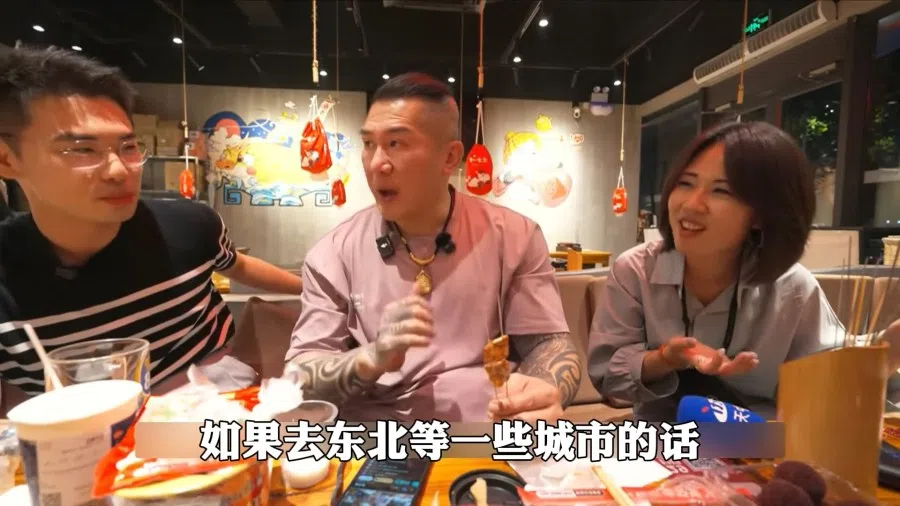
In terms of impact in the tussle over reunification, anyone who can expand the market of “identifying as Chinese” and win over individuals from the Green camp contributes more value than simply engaging with Blue camp figures who already oppose Taiwan independence.
Beijing still wants peace
While Cheng Li-wun and Holger Chen have switched camps, Wang Shih-chien has not. Wang’s father, Wang Ming-te, was accused of involvement in the arrest of Communist spy Wu Shi, a story dramatised in the popular mainland television series Silent Honour (《沉默的荣耀》). The popularity of Useless and Silent Honour has been interpreted as an effort to forge a sense of shared memory across the Taiwan Strait.
Unless Taiwan’s president takes a radical turn, it is unlikely that the Strait will be on the brink of war before the next Taiwanese presidential election in 2028.
Western commentators have long warned that Beijing might invade Taiwan by 2027. Yet judging from the congratulatory message sent by China’s top leader to Cheng, the mainland’s core approach remains focused on preserving peace and stability in the Taiwan Strait and enhancing cross-strait kinship and well-being. Unless Taiwan’s president takes a radical turn, it is unlikely that the Strait will be on the brink of war before the next Taiwanese presidential election in 2028.
The phenomena represented by Cheng and Chen Chih-han may prove fleeting — their whirlwind popularity may not last — but their emergence has at least reassured Beijing and may help reduce the immediate risk of conflict across the Strait. Ultimately, however, the way the Taiwan question is resolved will still depend overwhelmingly on the balance of hard power between Beijing and Washington.
This article was first published in Lianhe Zaobao as “郑丽文新时代国民党如何牵动台海局势?”.
